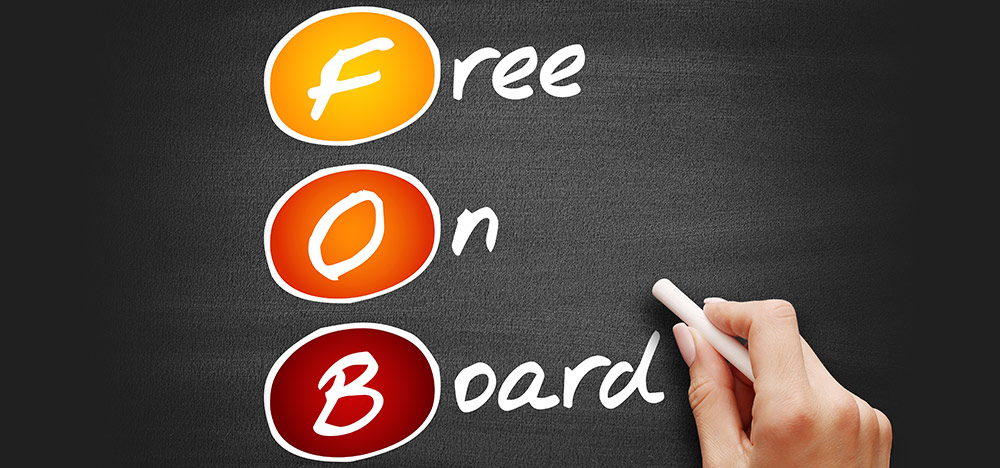No matter where you look these days, you’ll find phrases shortened into initials. A star athlete is promoted as the GOAT (greatest of all time); a coworker needs a report by EOW (end of week); a client wants an order shipped ASAP (as soon as possible). While many of these acronyms are familiar to people from all walks of life, others are industry-specific.
If you’re in the shipping business, you’ve probably seen the term FOB on your documents, but you may not know exactly what it means. No need to have FOMO (fear of missing out) — keep reading to learn what FOB terms mean for your business.
What Is the Definition of FOB in Shipping?
Though it looks like the word fob, FOB doesn’t have anything to do with watch chains or car keys. Instead, it stands for “free on board.” Historically, FOB was an Incoterm agreement that applied only to items transported by ship; however, the term has now been broadened in the United States to include goods shipped by any means of transportation. So, using “freight on board” in contracts can create misunderstandings since that term isn’t defined in the U.S. Uniform Commercial Code, nor is it found in any edition of Incoterms.
According to the Council of Supply Chain Management Professionals, “free on board” refers to “contractual terms between a buyer and a seller, which define where title transfer takes place.” Specifically, FOB makes clear who is liable for goods if they are damaged or destroyed in shipping. If a shipment is “FOB origin,” once the seller gets the goods safely onto the mode of transportation, liability shifts to the buyer. With “FOB destination,” the seller maintains liability throughout the transportation of the goods until they reach the destination arranged with the buyer.
Who Pays the Freight on FOB?
It’s crucial to have clear FOB terms for any transaction since they determine who will pay for shipping and insurance costs. The term FOB alone doesn’t indicate who is responsible for freight charges. Instead, you must look at the accompanying words for clarification. There are multiple options:
- FOB origin, freight collect – The buyer assumes responsibility for the goods from the moment the carrier picks them up, and the buyer pays all freight charges.
- FOB origin, freight prepaid – The buyer assumes responsibility for the goods from the moment the carrier receives them, but the seller pays all freight charges.
- FOB destination, freight collect – The seller maintains responsibility for the goods until they are delivered to the buyer; however, the buyer pays all freight charges.
- FOB destination, freight prepaid – The seller maintains responsibility for the goods until they are delivered to the buyer, and the seller pays all freight charges.
To understand FOB terms better, let’s look at an example. ABC Corp. based in Miami, Florida, sells widgets to John’s Hardware in Albany, New York. If ABC ships $1,000 worth of widgets using the terms FOB Miami, freight collect, then John’s Hardware is responsible for any loss or damage that occurs to the goods during transit. Additionally, John’s Hardware must pay the freight charges. If, however, ABC uses the terms FOB Miami, freight prepaid, they would cover the freight costs, but John’s Hardware is liable for any damages during transport and would likely purchase insurance to protect the shipment.
On the other hand, if ABC ships the widgets FOB Albany, freight collect, they are liable for the goods all the way to Albany, but John’s Hardware must pay for the shipping. Finally, if ABC uses the terms FOB Albany, freight prepaid, not only are they responsible for the goods during transportation, but they also pay all freight charges.
Let Nexterus Help You Negotiate FOB Terms
When you choose a supply chain management company like Nexterus, we will work to get you the FOB designations that will be to your advantage. Nexterus has more than 76 years of experience negotiating freight terms and offers a wide range of services to help you tackle your supply chain needs.
Fill out the contact form on our website and submit it today to learn more about all the ways we can support your growing business!



